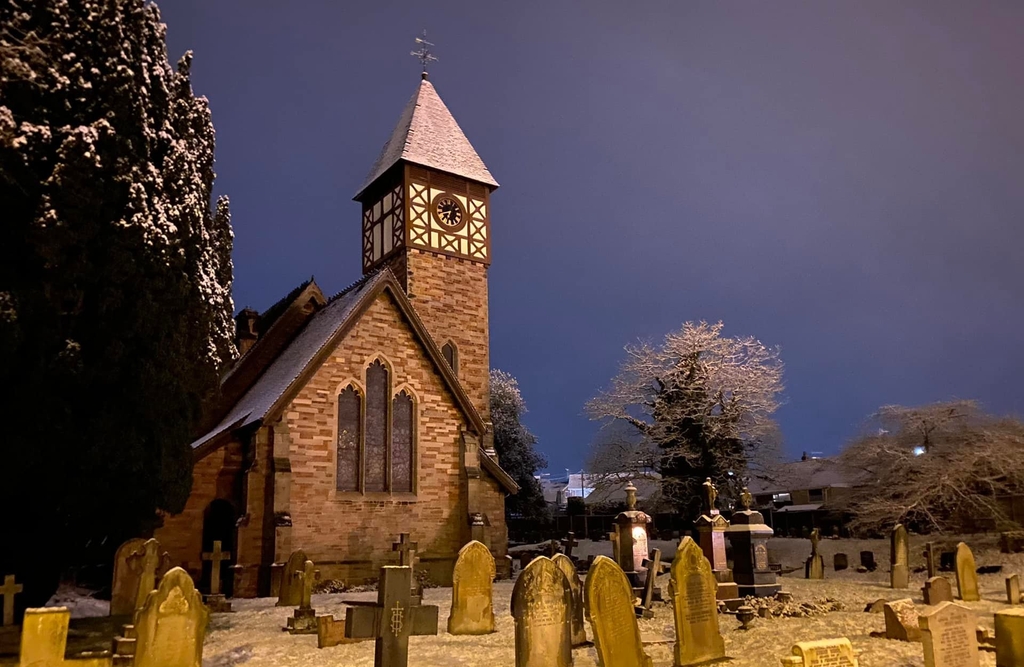Paul Graetz reminds us this week of the fact that Jesus is always there for us, with a message of love and an example of how to live. That reminder couldn't come at a better moment. We are all bound up in worrying about our personal affairs and the troubles of the world and the media have had a field day reminding us of it. There have been plenty of examples of people not loving one another as wars continue, children are tortured by their parents, political rivals throw insults and parts of the UK press ridicule old people for being 'snowflakes' as they die of heatstroke. It's a cruel world when people do not love one another as themselves.
The Church of England and many other churches follow a series of Bible readings for every day of the year, aimed at ensuring that most parts of the Bible get some exposure in people's lives. They are the ones that, usually, get read out at services and which leaders use when giving their talks and sermons.
The readings don't just follow one another as though you were working your way through the Bible from start to finish. Instead, they seek to reflect the time of year and different ideas and concerns that occur in everyone's lives. With such a thick book, there are plenty of choices to make! Those choices were made by groups of Christians who have studied the Bible in all its forms very thoroughly. The resulting series of readings is called the Lectionary.
This week, the reading from Luke's Gospel turns to prayer. Jesus was, as you might imagine, a great one for prayer, but he saw prayer as a very private matter, a talk between one person and God. He was not against people praying together and helped his followers learn how to pray either alone or together. The one thing that he didn't like and spoke against was the person whom he described as saying their prayers for everyone to hear on the street corners; in other words, the person whose prayers were aimed more at the people around them hearing them pray rather than at God. The publicly pious person, looking down on others because of their own 'humility' and seeking to score points with God and over others by demonstrating how devout they were, did not impress Jesus.
In this week's reading, the disciples ask Jesus how they should pray, just after he had finished his own private prayer. His response was a short form of what we now call The Lord's Prayer. There is a longer version in Matthew's Gospel but many scholars think that Luke's is closer to what Jesus actually said.
What Jesus said afterwards was emphatic, though. In effect, he said that 'getting through to God' could be quite tough, a bit like knocking on someone's door or sending them a text message and not getting a reply until you've had a few attempts. That seems a bit surprising to Christians, as we tend to be brought up to believe that God is all around us all the time, just aching to have a conversation like some very needy pal. Jesus seems to say that sometimes you need to be quite persistent to get through.
When you think about it, there's a lot of sense in what Jesus says. After all, if we got an instant response all the time, we would have God on tap like some kind of Google, Siri or Alexa device (other AI software is available!). That's not a relationship but something much more superficial. In learning to pray, we are not just learning to say some words; we are putting our minds and bodies into the 'right condition' to be able to communicate with the creator of everything. There is a quality of emptiness to be achieved, a willingness to empty our minds of anything else and to become open to what we call the Holy Spirit. The New Testament speaks of the Holy Spirit pouring out of God and into individuals. This is not an external experience, with the Holy Spirit washing around you whilst you remain an untouched observer. It is not a 'pillar of fire' moving in front of you as the Hebrew Bible describes, or a face of God that burns the face of anyone looking upon it, also as the Hebrew Bible says. This is something that enters you, engages with you with your willing assent, explores you, knows you better than you know yourself (as said in the Psalms), communicates with you and changes you. No wonder Jesus took himself off away from the crowds and frequently away from the disciples, so that he could prepare and pray. No wonder he remarked on the foolishness of praying in public on street corners, with at least one eye and both ears observing other people's reactions when what was needed was total concentration, total openness and no care for anything else.
As we read Paul Graetz's reflection, with its reminders of Jesus's two commandments to his disciples and of the fact that all the bad things (and good things) in the world are nothing compared to Jesus's love for us all, let's pray that we can all learn to pray better, that we can all learn to open up to the Holy Spirit and that all the barriers that the world provides are swept away. Amen.















